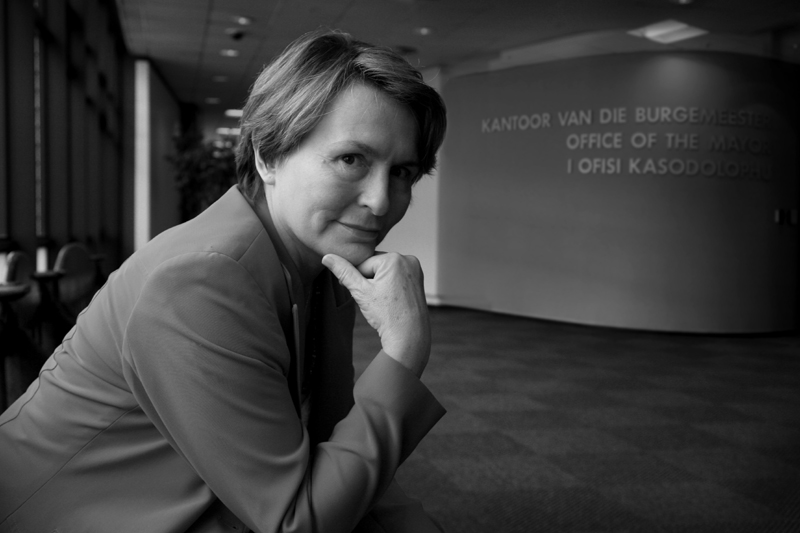
Helen Zille is the Mayor of Cape Town and leader of the Democratic Alliance political party, South Africa’s official opposition. Helen Zille has reached the final shortlist of 11 world mayors in the World Mayor Award for 2008, and she is the only remaining mayor of an African city. In her interview for metkere.com Helen Zille told about environmental sustainability, the preparation for the 2010 FIFA World Cup and her vision for the future of Cape Town.
— What are you working on now?
— At the moment I am focused on getting the first phase of our Bus Rapid Transit System for Cape Town underway, and also on improving the rate at which we deliver housing opportunities.
— What was the main problem for the city in preparation for the 2010 FIFA World Cup?
— The biggest challenge has always been, and still is, ensuring that we have adequate funding from central government for the major infrastructure investments we have to make, so that the City is not left with huge debts after the event is finished.
— This year Novosibirsk was the best place to watch total solar eclipse. Local residents and tourists were pretty disappointed in actions of the city administration in that period. What would you do if total eclipse had happened in Cape Town?
— I would first consult with a broad range of stakeholders to establish what is required by the public, and then look at what we could do within practical constraints to meet the demand.
— You are finalist for the World Mayor award. Could you give some advice to your Russian colleagues how to be a good mayor?
— I don’t think there is any one-size fits all approach — it really depends on doing the best you can, with what you have, where you are, and never giving up.
— What is your way to make the city more eco-friendly?
— We have a dedicated Environmental Resource Management Department which has formulated a range of policies to improve our environmental sustainability.
We have put various measures in place, including air-pollution by-laws and policing, major upgrades to our wastewater treatment plants to improve the quality of effluent that is released into our rivers and oceans, and investing in wind energy to reduce carbon emissions.
We also have very strictly controlled conservation areas and strong Environmental Impact Assessment laws at national government level.
— What is your vision for the future of Cape Town?
— I want to see it become a world class African city, one that can attract enough skills and capital in the global arena to sustain faster economic growth and job creation. I want to see Cape Town get to the point where economic growth is substantial enough to enable us to address our main developmental challenges.